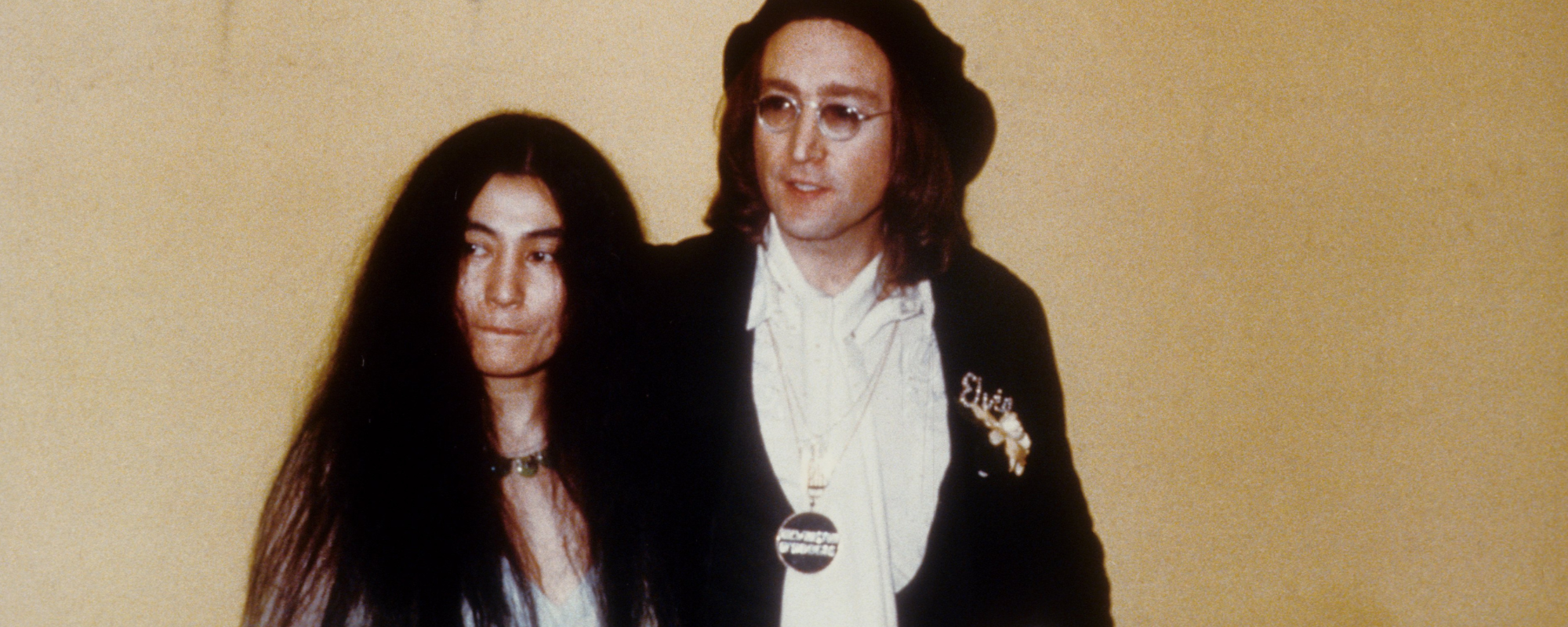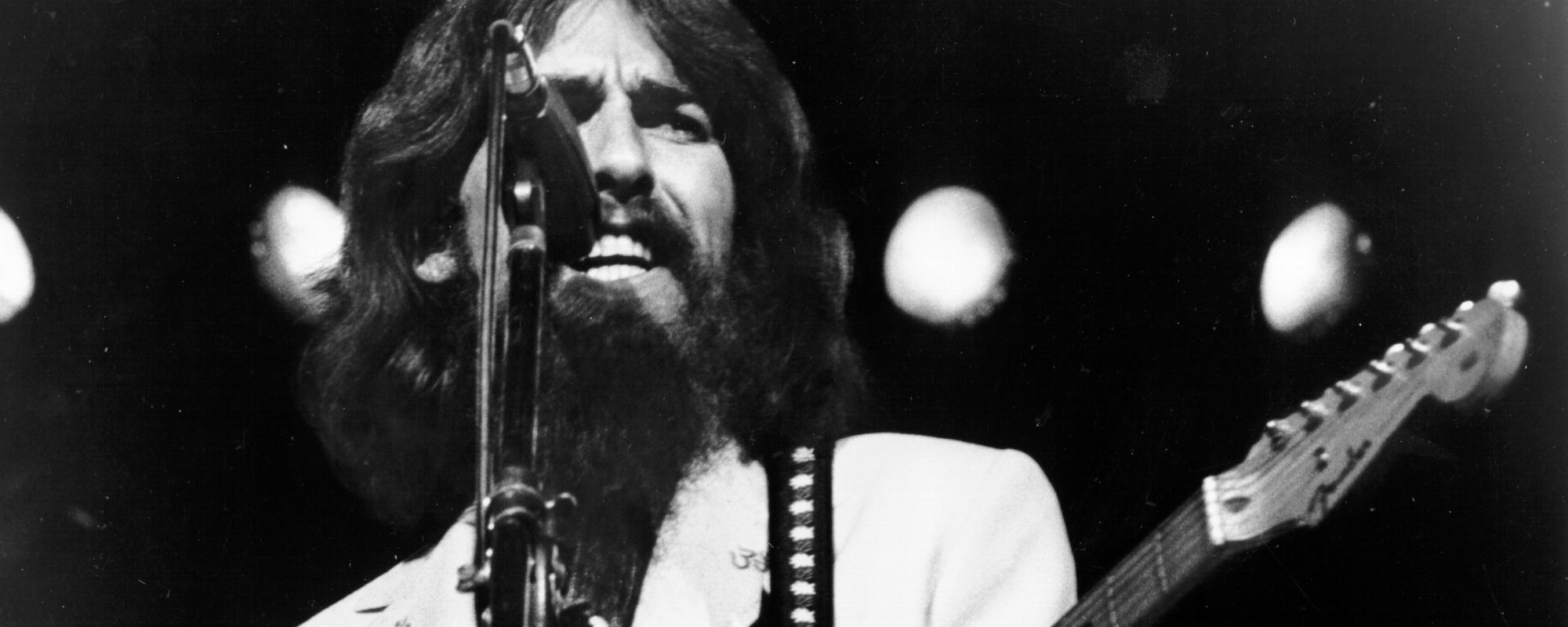This article was originally published in the March/April 2004 print version of American Songwriter.
Videos by American Songwriter
Singer/songwriter James Douglas Morrison was an icon in life who became a modern-day myth after his shocking death at the age of 27. Morrison’s poetic, sensual, often mystical, and definitely visionary lyrics propelled the blues and jazz-inspired rock music of the Doors to the top of the charts with a strong cult-like following in the late ‘60s and early ‘70s. His influence in strongly visual lyrics, uncompromising honesty, and the search within continues today.
With bandmates Ray Manzarek, John Densmore and Robby Krieger (all of whom he met as a student at the University of California), he recorded such unforgettable songs as “Riders on The Storm,” “Light My Fire,” “Break On Through (to the Other Side),” “Hello I Love You,” “Love Me Two Times,” “Touch Me,” “People Are Strange,” “Love Her Madly” and “Crystal Ship” for Elektra/Asylum Records.
Often considered by critics as dark and brooding, the band’s work had several predictable themes: Morrison’s fascination with darkness and death and his fascination with Satan and witches. He went into haunting music that didn’t easily leave the listener’s mind. Even the group’s concerts tried to ignite the power and energy of the Doors’ music—Morrison wasn’t just skirting the edges of danger—he was the danger, especially to the complacent listener. With great intensity, he insisted you pay attention and become involved.
Morrison’s 1967 bio quoted him as saying, “I like ideas about the breaking away or overthrowing of established order . . . It seems to me to be the road to freedom—external revolt is a way to bring about internal freedom . . . I start outside—reach the mental through the physical.” Morrison expounded on this later in his career, explaining, “If my poetry aims to achieve anything, it’s to deliver people from the limited ways in which they see and feel.”

It’s probable that is why his onstage performances seemed so completely outrageous, dramatic, and impassioned. In fact, that was the very topic he discussed in his last interview. He told Danny Sugerman, “For me, it was never really an act, those so-called performances. It was a life-and-death thing—an attempt to communicate, to involve many people in a private world of thought.”
The Florida native (born December 8, 1943, in Melbourne) attracted many admirers in the past and attracts them even today. Rumors still persist that his death was an elaborate hoax to escape from the fame. Following his death in Paris in the wee hours of July 3, 1971, as a result of heart failure (speculated causes: a blood clot resultant from a respiratory illness or a drug overdose, though no official autopsy was performed), Jim’s body was buried in a much-visited and sadly desecrated grave in Paris’ Cimetière du Père Lachaise, where Oscar Wilde and Edith Piaf are also buried. On the 30th anniversary of his death, 600 fans from around the world attended a celebratory event there, during which Manzarek and Sugerman screened hours of rare movie footage of the Doors, honoring Morrison’s life and music.
Morrison has inspired books (such as Manzarek’s Light My Fire: My Life with the Doors, Sugerman’s and Jerry Hopkins’ No One Here Gets Out Alive, and American Legends Publishing’s The Jim Morrison Scrapbook, to name just a few) and a successful Oliver Stone movie (The Doors, featuring Val Kilmer and Meg Ryan). His own books, An American Prayer, The Lords and The New Creatures, The American Night: The Writings of Jim Morrison Vol. 1 and Vol. 2, The Story of the Doors in Words and Pictures, and Wilderness: The Lost Writings of Jim Morrison, were published from 1970-1991. He also collaborated on a screenplay with Michael McClure and directed the movie A Feast of Friends. In a time before music videos were widely created, his songs “Break on Through” and “The Unknown Soldier” were accompanied by short films. He ostensibly moved to Paris to focus on a literary career. With all the above accomplishments by the age of 27, it’s intriguing to speculate on the possibilities lost to time.
More recently, The Doors, whose name came from Aldous Huxley’s book The Doors of Perception —and refers to a passage in a William Blake poem, “If the doors of perception were cleansed, everything would appear to man as it is, infinite”— have been inducted into the Rock and Roll Hall of Fame. Those who want to learn more about the band, its history, and its music can visit its official website
Why does the undeniably charismatic Morrison still demand such loyalty? Many feel his lyrics expanded their minds in a way no other had done; many believe his music introduced a new freedom in their lives; and many feel he was a muse who changed their lives forever by demanding that they use their creative energy and “break on through to the other side.”
Morrison liked to say, “There are things known, and there are things unknown, and in between are the doors.” Morrison’s lyrics and actions pushed the doors to the limit, literally and figuratively. Jim Morrison wanted to be known as a poet. In the end, it seems his wish came true.
Photo by Michael Ochs Archives/Getty Images













Leave a Reply
Only members can comment. Become a member. Already a member? Log in.